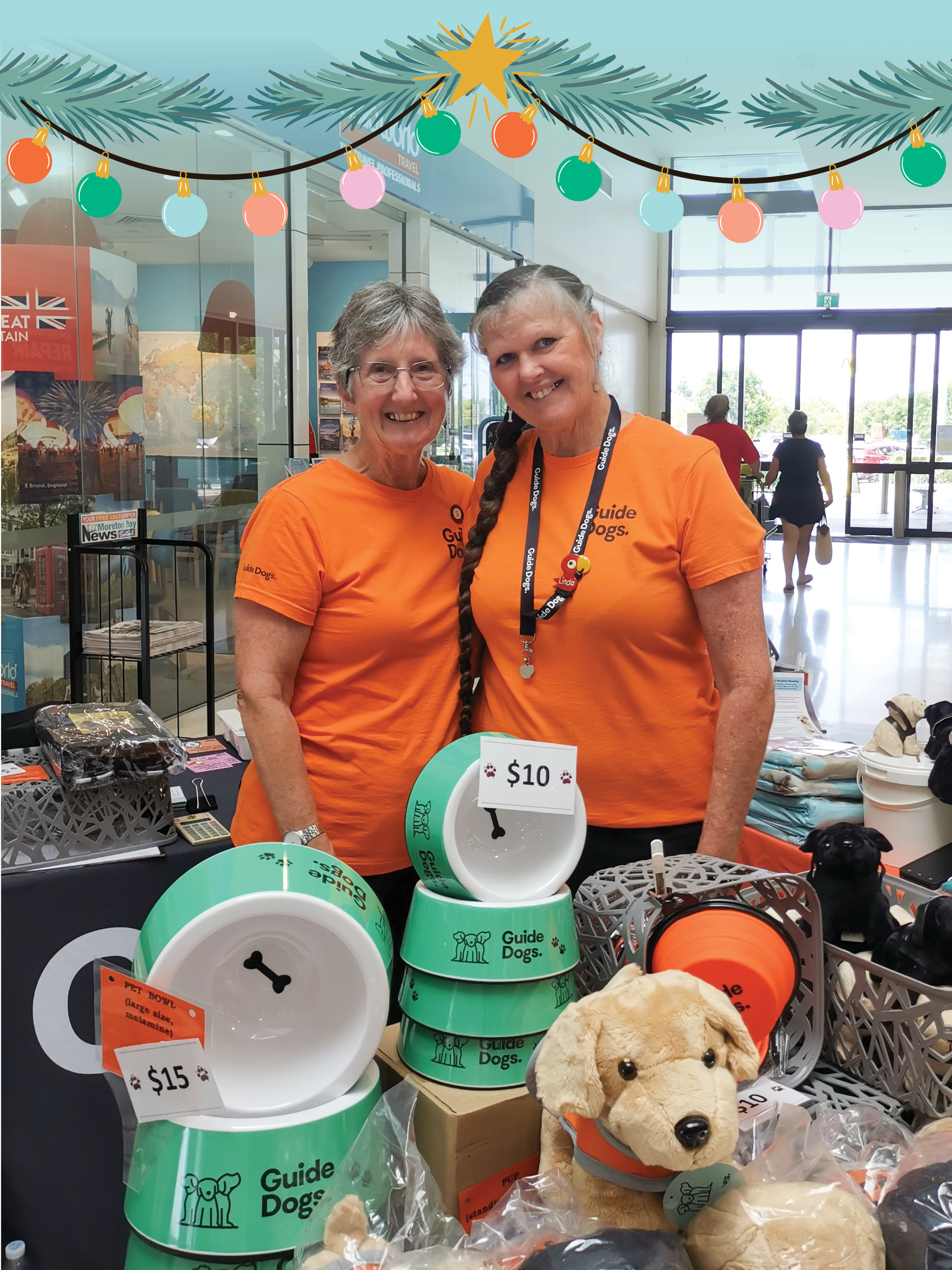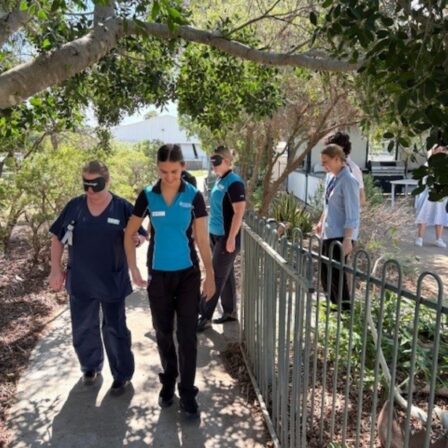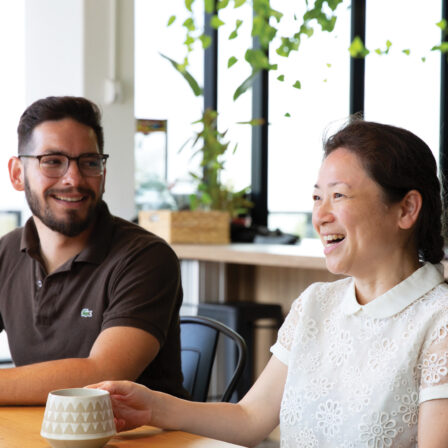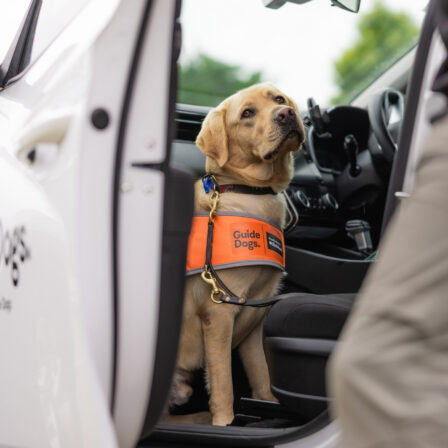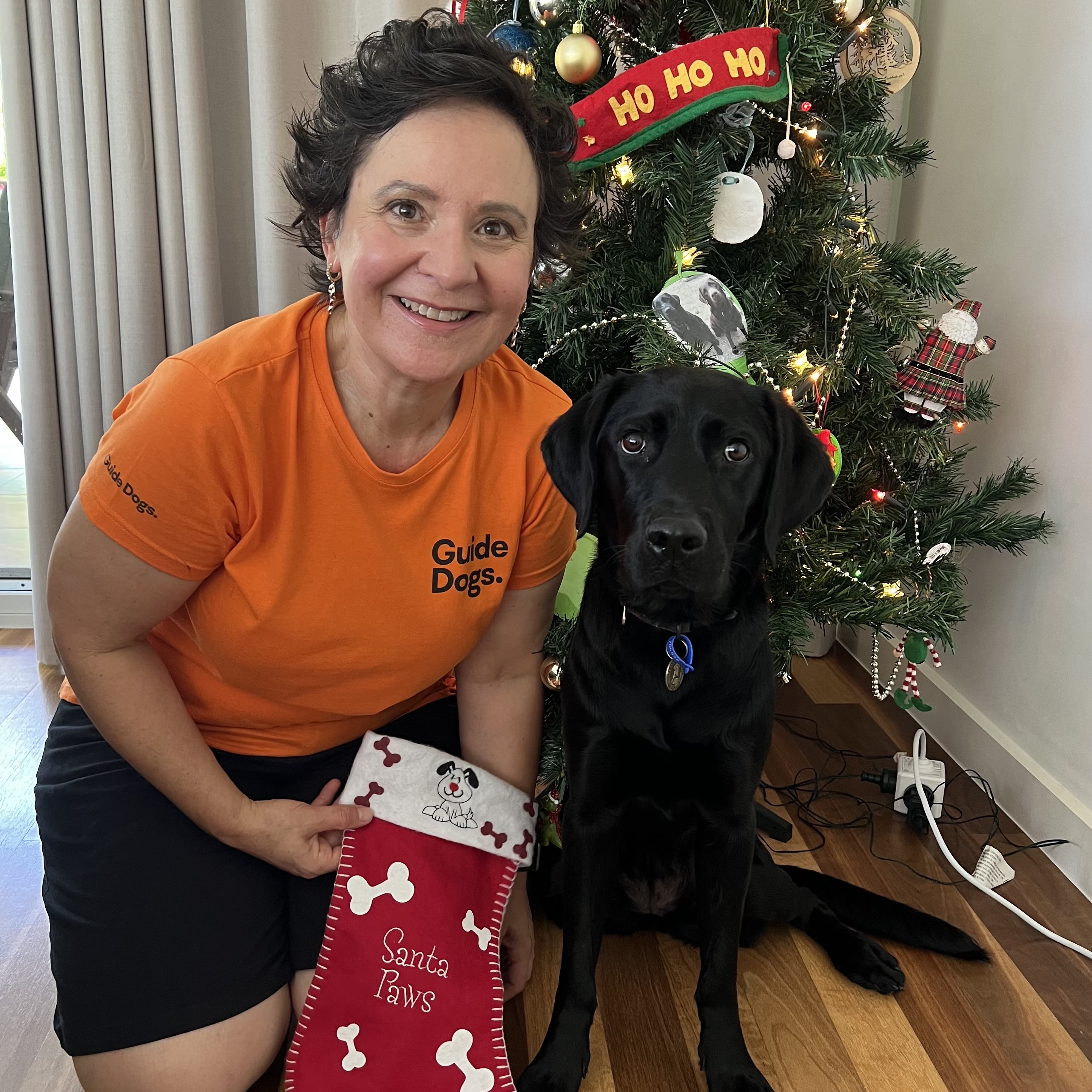News
Guide Dog Training

It takes a very special dog to become a Guide Dog…
And it takes a lot of time, patience and training to get them ready to be matched with a blind or vision impaired handler. Guiding is a complex and challenging task for a dog but it is also incredibly rewarding.
A Guide Dog’s job is to lead a handler around obstacles from one location to another in the safest and most time efficient way possible. Our Guide Dog services team works with every dog through the various stages of training. Our intensive matching process ensures that every dog goes to a person who is best suited to them.
Choosing a puppy to become a Guide Dog
We begin training our pups from the moment they are born, introducing them to as many new sights, sounds, textures and experiences as possible while they are in the safe environment of the Breeding Centre. Click here to find out more about our Breeding Centre.
We primarily breed Labradors in our Guide Dog program as they are loyal, intelligent, calm, and respond well to training.
Our specialist team carefully assess our puppies at every stage to ensure they are suited to Guide Dog work. Potential Guide Dogs must be healthy, confident, eager and keen to work, show good concentration and not be distracted by food or other animals. We assess our dogs based on their skills, personality and temperament and depending on their strengths, a puppy may graduate as a Guide Dog or go into another career path.
Puppy Raising
At eight to ten weeks of age, our puppies begin the first stage of Guide Dog training when they are placed with volunteer Puppy Raisers. During this time, our puppies go almost everywhere their raisers go including to the shops, restaurants and work. This helps our pups learn basic socialisation and obedience skills ensuring they are calm and familiar with a variety of different situations that they may encounter as a working Guide Dog.
Puppy Raisers also attend puppy classes in various locations, allowing them to get to know the other raisers and ask any questions they may have. The pups stay with their Puppy Raisers until they’re around 16 to 18 months old.
If you’d like to become a Puppy Raiser, click here to find out more.
Formal Guide Dog Training
The puppies who pass assessment and go onto formal training undergo an intensive five month training program to build confidence and consistency while their trainer observes their personality and temperament. Training involves positive reinforcement, lots of treats and pats as the dogs learn the skills they need.
Training each Guide Dog takes a lot of time, love and hard work, but each time our Guide Dogs are matched with their new blind or vision impaired handler, we feel a great sense of pride. Our intelligent Guide Dogs lead very interesting lives and they certainly show that they love the work that they do. And when the harness comes off, they have plenty of time to play, rest and enjoy being a dog.
What do Guide Dogs learn?
Our Guide Dogs are taught a wide range of skills beginning with simple tasks, moving on to more complex commands as they advance. These skills include:
- travelling confidently through crowds and busy streets
- walking on the left-hand side of their handler in a straight line
- stopping at all kerbs
- waiting for a command before entering a doorway or crossing the road
- stopping at the top and bottom of stairs
- avoiding obstacles up to head height
- taking their handler to a lift
- boarding and travelling on public transport
- laying quietly and behaving calmly, particularly in cafés or working environments
- avoiding obstacles that are too narrow for the Guide Dog and handler to walk through side by side
- ignoring commands that may lead the handler into danger (i.e. if the handler commands the dog to cross the road but a car is coming).
Training a Guide Dog Team
Dogs that successfully complete our rigorous training program are matched with a new handler with low or no vision. We make sure that every dog is well suited to their handler’s lifestyle and travel needs. There is a lot to consider including how fast the handler walks, if they are employed or studying, if they are a parent, their social activities, and so on.
After a team is matched, training with the Guide Dog is personalised and tailored to the needs of the handler. Training takes place in the handler’s home environment and local community. Within a month of working together, the Guide Dog team learn how to work together and how to travel safely through different routes.
Ongoing training and support
After a team is matched, our Guide Dog staff continue to support and work with the Guide Dog team throughout their working life. Ongoing support is provided especially when a team is faced with a new area of travel, or change their current route.
When a successful Guide Dog team has been working independently for a number of months, Guide Dogs Queensland hosts a graduation ceremony with their peers to celebrate their unique partnership. Sponsors, Puppy Raisers, instructors, family, friends and supporters all come together to celebrate the special occasion.

